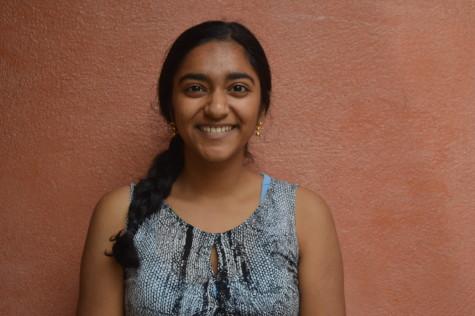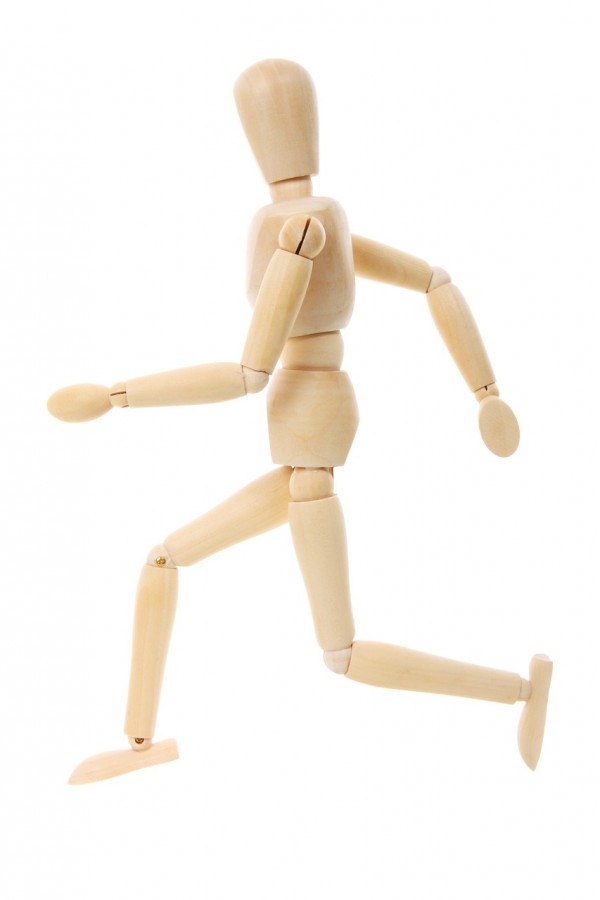Apoorva Approved: The Upper School needs to vocalize its body-positive undertones
Rolling waves. Beating sun. A complete lack of academic obligation. Can you think of a better way to spend a Monday and Tuesday in May?
A year ago, I certainly could. To stressed-out junior me, the senior trip to Laguna Beach posed a conundrum: relax in Edenic bliss while freaking out about my perceived bodily imperfections — the stretch marks, the hip bones, the skinny ankles. It was last year that I realized how much I’d sucked up the social and media connotations of these parts of my body – that they’re less than perfect.
Since that point, I started talking to my friends about my body and realized that Harker is one of the most accepting places I’ve ever been in. So many of my friends have healthy attitudes towards their bodies and believe that physical health leads to emotional well-being. Whenever I’ve expressed even the slightest insecurity about my physical appearance, I’ve had hordes tell me I have nothing to worry about.
In this issue, we’ve included an article about body image on campus and its intersection with health and fitness. The first thing that struck me about the piece was the preponderance of kids with a desire to be healthy, not just skinny. So many conversations in the media have revolved around the lack of health in teenage life that, to me, Harker seems like a bright light in that landscape.
Harker does so much right regarding our health — encourages us to pursue athletics and offers Healthy Choice and other health-conscious options during lunch, so anyone who intends to be healthy can do so with ease. But I was surprised that we’ve heard nothing from the administration about the perception of so many seniors attempting to get that beach-ready body.
The way in which a body-positive message is communicated is important too. The administration can’t bring up issues of body image while dismissing the fact that there is a pressure to be skinny. That would invalidate the struggles of those at the Upper School going through serious eating or health tribulations.
It’s imperative that we have more of the vocal positivity that I was lucky to get last year. I would be in a worse place mentally if not for my social net of friends and family who reminded me that whatever my body looked like after I ate healthy food and drank enough water and exercised a bit was good enough.
That advice is healing, and having it come from friends and peers – from students who understand that “the social image comes as a side benefit,” as Abhay Varmaraja (10) said in the article – is even more so.
This piece was originally published in the pages of The Winged Post on April 22, 2015.

Apoorva Rangan (12) is the Editor-in-Chief of The Winged Post and a fourth-year staff member. She has previously served as the paper’s Managing Editor...


















![“[Building nerf blasters] became this outlet of creativity for me that hasn't been matched by anything else. The process [of] making a build complete to your desire is such a painstakingly difficult process, but I've had to learn from [the skills needed from] soldering to proper painting. There's so many different options for everything, if you think about it, it exists. The best part is [that] if it doesn't exist, you can build it yourself," Ishaan Parate said.](https://harkeraquila.com/wp-content/uploads/2022/08/DSC_8149-900x604.jpg)




![“When I came into high school, I was ready to be a follower. But DECA was a game changer for me. It helped me overcome my fear of public speaking, and it's played such a major role in who I've become today. To be able to successfully lead a chapter of 150 students, an officer team and be one of the upperclassmen I once really admired is something I'm [really] proud of,” Anvitha Tummala ('21) said.](https://harkeraquila.com/wp-content/uploads/2021/07/Screen-Shot-2021-07-25-at-9.50.05-AM-900x594.png)







![“I think getting up in the morning and having a sense of purpose [is exciting]. I think without a certain amount of drive, life is kind of obsolete and mundane, and I think having that every single day is what makes each day unique and kind of makes life exciting,” Neymika Jain (12) said.](https://harkeraquila.com/wp-content/uploads/2017/06/Screen-Shot-2017-06-03-at-4.54.16-PM.png)








![“My slogan is ‘slow feet, don’t eat, and I’m hungry.’ You need to run fast to get where you are–you aren't going to get those championships if you aren't fast,” Angel Cervantes (12) said. “I want to do well in school on my tests and in track and win championships for my team. I live by that, [and] I can do that anywhere: in the classroom or on the field.”](https://harkeraquila.com/wp-content/uploads/2018/06/DSC5146-900x601.jpg)
![“[Volleyball has] taught me how to fall correctly, and another thing it taught is that you don’t have to be the best at something to be good at it. If you just hit the ball in a smart way, then it still scores points and you’re good at it. You could be a background player and still make a much bigger impact on the team than you would think,” Anya Gert (’20) said.](https://harkeraquila.com/wp-content/uploads/2020/06/AnnaGert_JinTuan_HoHPhotoEdited-600x900.jpeg)

![“I'm not nearly there yet, but [my confidence has] definitely been getting better since I was pretty shy and timid coming into Harker my freshman year. I know that there's a lot of people that are really confident in what they do, and I really admire them. Everyone's so driven and that has really pushed me to kind of try to find my own place in high school and be more confident,” Alyssa Huang (’20) said.](https://harkeraquila.com/wp-content/uploads/2020/06/AlyssaHuang_EmilyChen_HoHPhoto-900x749.jpeg)



